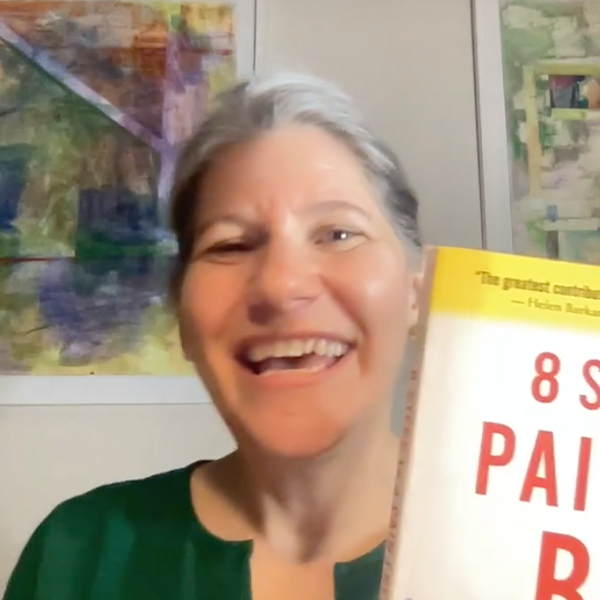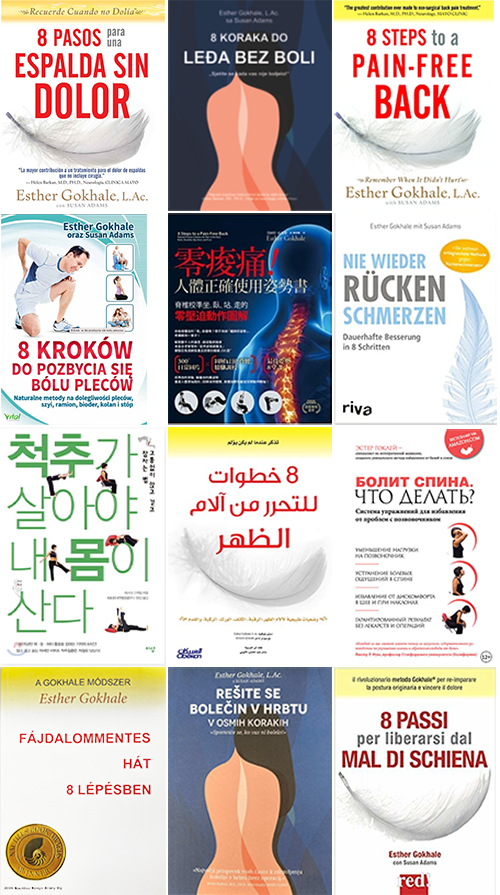Every testimonial for the Gokhale Method® represents somebody’s journey out of pain, often after many years of misery, fear, and unsuccessful efforts. All of these people have done the hard miles of being in pain, and then been surprised at the simple pathway to being pain-free that is the Gokhale Method®.
The Virtues of a Hard Copy Book in Digital Times
It has been 14 years since my book 8 Steps to a Pain-Free Back came out in hard copy. For years I had wished I had a book to send to those people who called me from the East Coast or Midwest. These were often relatives or friends of people I had worked with in California, who were suffering terrible back pain and needed help. And so I got writing.
A book to solve back pain
Although there was clearly a huge need for a book to solve back pain, I was still surprised to find I had written a bestseller. It reached number two on Amazon.com following our American Public Television program in 2011, and number three following the New York Times article (paywall) naming me “The Posture Guru of Silicon Valley” in 2013. It has now been published in 12 languages (Croatian later this year), and sold over 250,000 copies.


